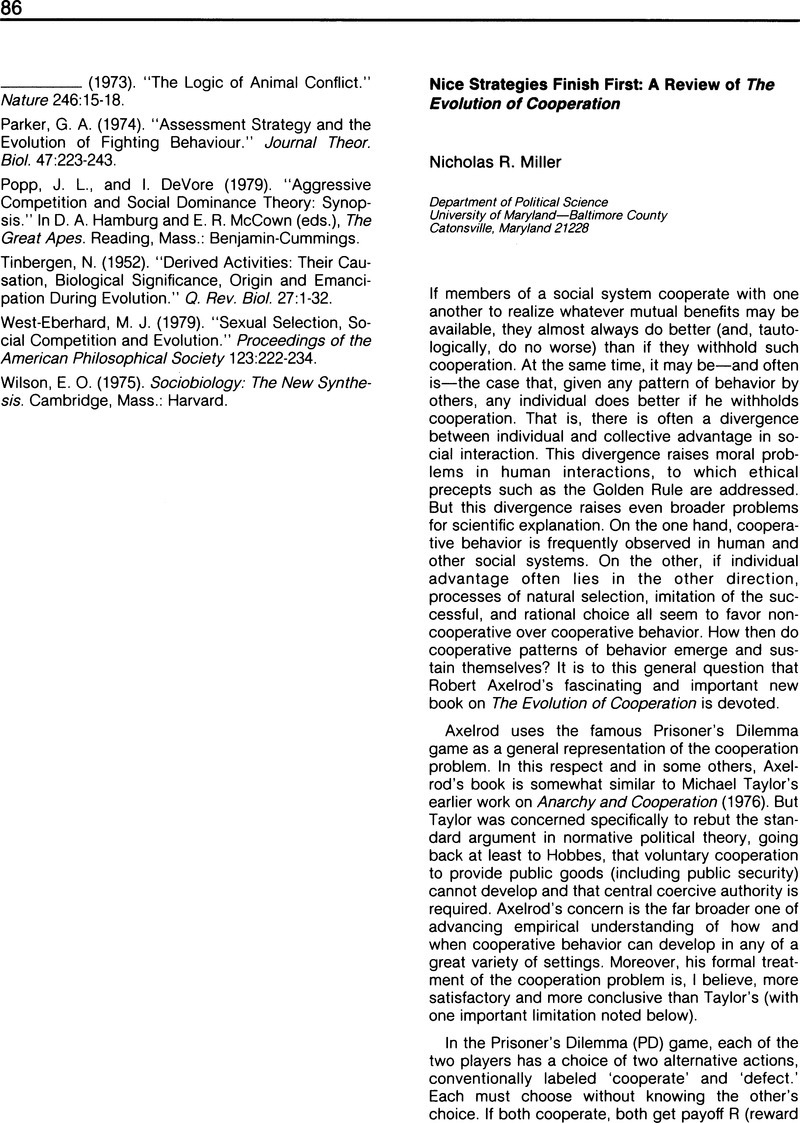Article contents
Nice Strategies Finish First: A Review of The Evolution of Cooperation
Published online by Cambridge University Press: 17 May 2016
Abstract

- Type
- Book Reviews
- Information
- Copyright
- Copyright © Association for Politics and the Life Sciences
References
- 2
- Cited by



